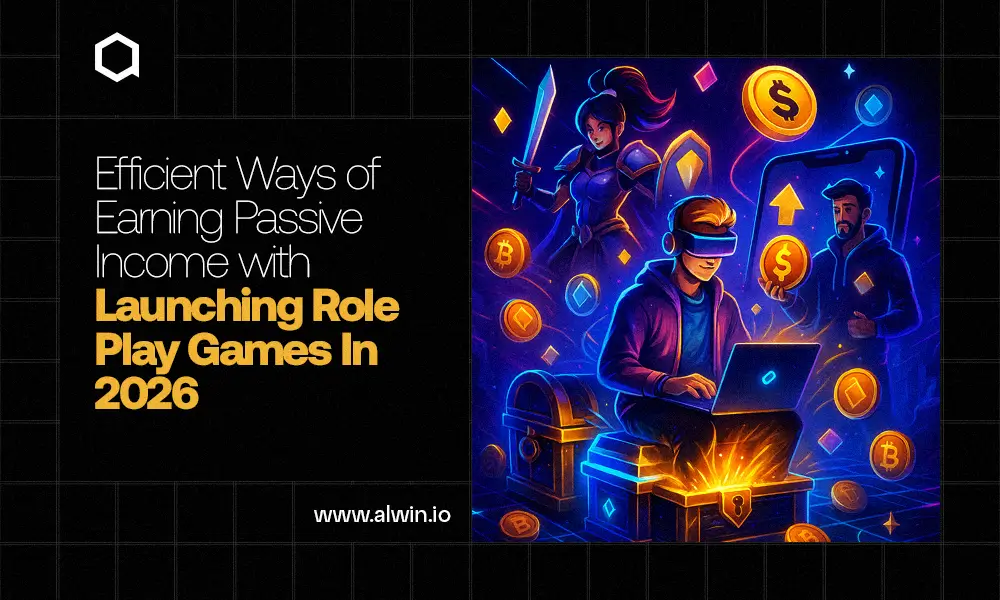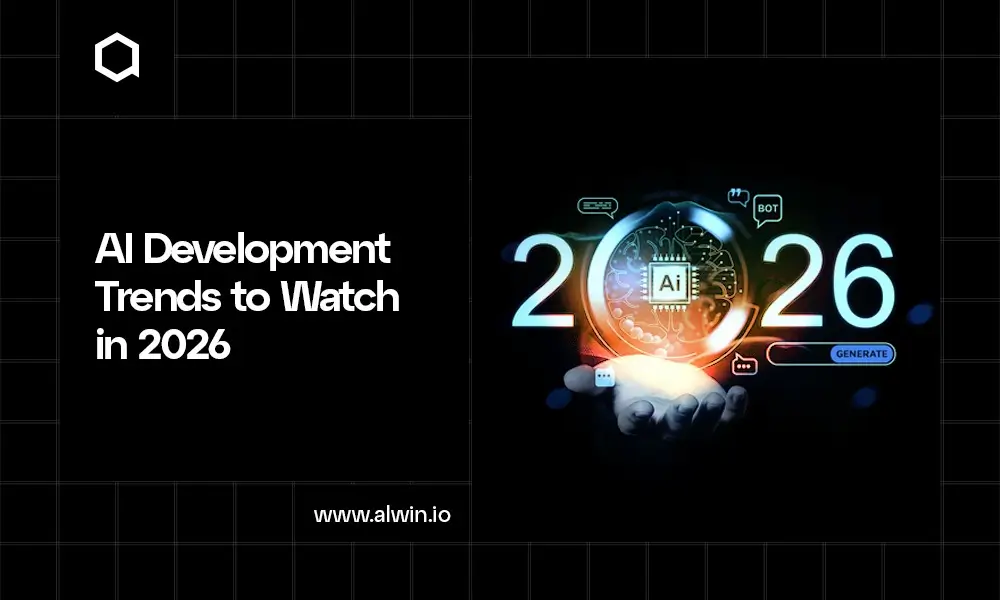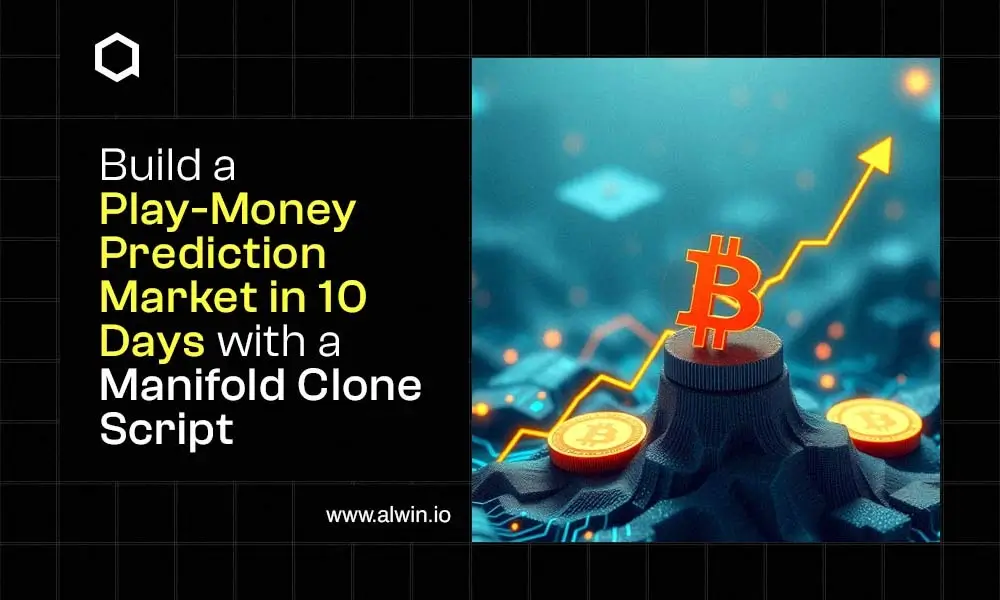Imagine earning money while simply playing or owning a game - sounds like a dream, right? Well, in 2026, that dream is quickly becoming reality. The gaming industry is moving far beyond entertainment, opening doors for players, creators, and entrepreneurs to earn real passive income through role-playing games (RPGs). RPGs are no longer just about quests, battles, and storylines; they’re evolving into digital economies where every action can lead to real-world profit.
From owning in-game assets to building your own RPG-based world, the potential to generate long-term revenue has never been higher. Whether you’re a developer aiming to create a thriving digital realm, an investor looking for sustainable income streams, or a gamer wanting to level up your earnings, launching a role-play game in 2026 could be your golden opportunity.
In this blog, we’ll explore how you can turn your RPG idea into a passive income machine, the technologies shaping this shift, and why 2026 might be the ideal year to start.
What Are Role-Play Games and the User Stats?
Role-Playing Games (RPGs) allow players to step into the roles of fictional characters, explore detailed worlds, and make meaningful choices that influence the storyline. These games mix storytelling, strategy, progression, and character-building, allowing players to live out adventures far beyond their daily lives.
Examples include The Witcher 3, Final Fantasy, and Genshin Impact, where every upgrade, quest, and decision affects the game’s direction. RPGs thrive on depth, customization, and strong player engagement.
- The market reflects this demand. According to Statista:
- The RPG gaming segment generated over $25 billion in 2024.
- It is expected to exceed $35 billion by 2026.
- Over 40% of global gamers play RPG or adventure-style games regularly.
- Mobile RPGs are also growing rapidly due to multiplayer features and blockchain-based earning models.
Efficient Ways to Earn Passive Income by Launching a Role-Play Game in 2026
The gaming landscape is advancing faster than ever, and 2026 is shaping up to be a major turning point. Web3, blockchain, and metaverse technologies are redefining how RPGs generate value. When you launch your own RPG, you're not just creating entertainment — you're building a self-sustaining digital economy that can earn money continuously.
Below are the top methods to generate passive income from your RPG.
1. Tokenomics — The Core of the Game Economy
In Web3-based RPGs, tokenomics becomes essential. Developers can introduce a native token used for every in-game transaction, trading items, buying upgrades, accessing premium features, and more.
As more players use the token, its demand and value grow. Developers earn from:
- Transaction fees
- Staking rewards
- Liquidity pools
This model functions like Fortnite’s V-Bucks but with real-world monetary value.
2. NFT Assets — Turning In-Game Items Into Real Assets
Blockchain RPGs allow players to truly own weapons, skins, characters, or mounts through NFTs. Players can buy, sell, and trade these assets freely.
Developers earn passive income through NFT royalties (usually 2–5%) on all secondary market sales — creating ongoing revenue even when players trade between themselves.
3. Staking and Yield Programs
Your RPG can include staking systems where players lock their tokens or NFTs to earn rewards. Developers earn a small fee from staking pools, making it a recurring income source while keeping the in-game economy more stable.
4. Subscription Models and Season Passes
RPGs are perfect for subscription plans and season passes. Offer premium features like:
- Exclusive quests
- Rare loot
- Faster progression
- Special events
- Monthly or seasonal subscriptions provide continuous income, even when some players are inactive.
5. Virtual Land and Property Leasing
If your RPG includes a metaverse or open-world map, virtual land becomes a powerful monetization method. Players can:
- Buy land
- Rent properties
- Lease buildings for events
- You earn a percentage from each transaction. It’s digital real estate — simple and effective for long-term income.
6. Brand Deals and In-Game Advertising
As your RPG grows, brands may want to appear inside your game world. Examples include:
- Virtual billboards
- Sponsored quests
- Branded character skins
- Corporate-themed events
This creates a new passive income channel, especially with in-game advertising expected to exceed $25 billion by 2026.
7. Play-to-Earn (P2E) Reward Systems
In P2E RPGs, players earn tokens or NFTs for completing objectives or winning battles. Each time they trade or transfer these, you earn a fee.
- Player activity
- Token circulation
- Developer earnings
Games like Splinterlands and Decentraland already use systems like this successfully.
8. DAO Governance — Community-Driven Growth
By adding a DAO structure, your community helps decide game updates and major changes. Developers keep a portion of governance tokens, which grow in value as the community expands.
This reduces management overhead while strengthening long-term stability.
9. Licensing, Franchising, and White-Label Models
Once your RPG gains traction, developers may want to use your frameworks or smart contracts. You can license your technology or provide a white-label version for a set fee — turning your system into a repeating revenue source.
This is similar to SaaS, but designed specifically for RPGs.
10. Cross-Platform Expansion
Expanding your RPG to multiple platforms — mobile, PC, consoles, or VR — multiplies your monetization options.
Each version can feature:
- In-app purchases
- NFT marketplaces
- Subscriptions
- Battle passes
- Interoperable assets keep your ecosystem active across platforms.
Building Wealth Through Gaming
By 2026, the blockchain gaming space is expected to exceed $80 billion, with RPGs leading the charge. Players have shifted from merely consuming content to owning assets, contributing to economies, and participating in long-term digital worlds.
Launching an RPG now allows you to tap into this expanding market while building revenue streams that operate continuously. Partnering with a professional role play game development company can help you build a powerful RPG ecosystem designed for long-term growth and profitability.
Final Thoughts
Gaming in 2026 will be more than entertainment; it will be a major economic opportunity. RPGs are becoming digital societies powered by tokens, NFTs, and community-driven mechanics. Every quest completed, item traded, or token staked contributes to a living economy that rewards both players and creators.
If you’re ready to bring your RPG idea to life, working with a professional game development company like WeAlwin Technologies can help you build, launch, and scale your project. Their expertise in game development can guide you through creating a profitable, sustainable RPG that offers long-term passive income.
Why just play a game when you can create one that pays you back?



